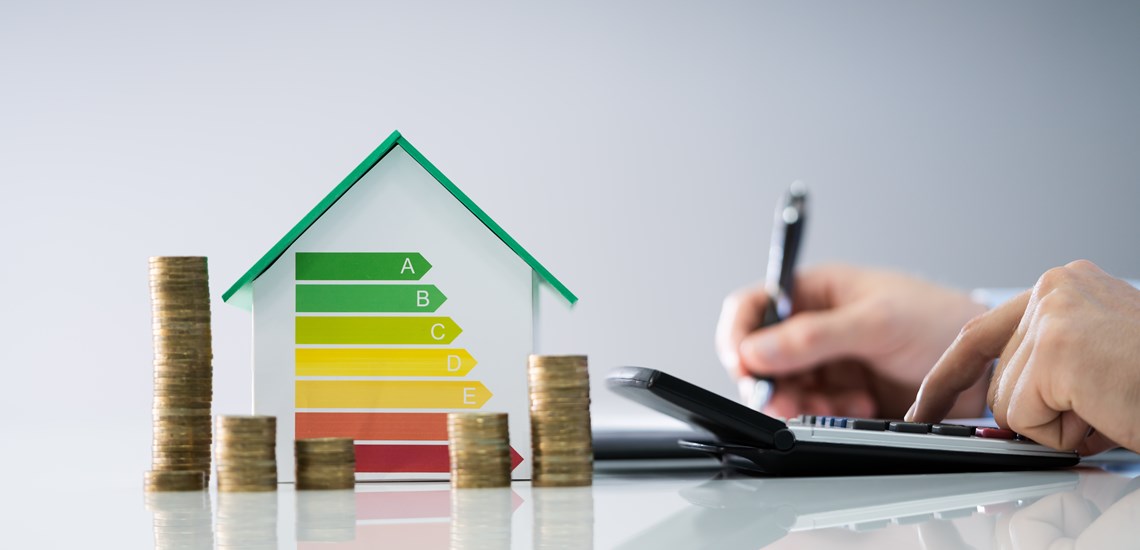
How can you benefit?
With the latest EPC regulation changes, landlords need to ensure their properties are upgraded or at least functioning at a grace C rating. But what features help to boost a property’s energy efficiency? Not only is a high EPC rating good for the environment, you may benefit from saving on annual energy bills by being more efficient.
The government aims to get as many homes as possible up to an EPC rating of C by 2035 and there are various changes you could make to achieve a rating of C whether you have a new build home or need to upgrade an older property. Here are our top tips for how you can improve your homes’ EPC grade.
Upgrade to LED lightbulbs
Upgrading the lighting in your home is an easy fix for every property’s EPC, if you haven’t already done so. This usually does not require additional specialist support so is only as costly as the lightbulbs you choose.
Install insulation
According to the energy saving trust, approximately one third of all the heat lost in an uninsulated home escapes through the walls. Most homes in the UK have cavity walls, the gap can be filled with insulation. However, if you have solid walls, these can be insulated from the inside or outside of your home.
Insulating your ground floor is another way to save money on your heating bills and improve your EPC rating. If you’re looking for a quick fix, you could seal the gaps between floors and skirting boards to reduce draughts yourself, using a tube of sealant bought from any DIY store. Please note, if you live in a mid-floor flat, heat will escape from your home through the roof. If your loft is easy to access and has no damp or condensation problems, you may be able to insulate it yourself.
Invest in double or triple glazed windows
Improving your window insulation is another highly recommended home improvement you could make to improve your EPC. Double glazing is the most popular option, although costs vary depending on the materials and style. PVC windows tend to be cheaper while hardwood frames are the most expensive.
Install a more efficient boiler
If you have an older home, your boiler might need upgrading. The costs for replacing an old inefficient boiler may vary. Although replacing or upgrading boilers can be seen as more of an expense, the payback comes in the reduction of your bills, making a newer boiler a worthwhile investment.
Install a smart reader
Installing and using heating controls effectively may require further investment but could save you money in the long-term. You could even save money by simply turning your thermostat a few degrees lower than usual. Be more energy efficient and work on the basis of heat the person, not the room- in other words, you do not need heating on in rooms that are not occupied! If you don’t have any heating controls, installing a set can help you monitor and reduce the amount you are using.
Invest in solar or photovoltaics panels
If you are in the financial position to do so, you could make some bigger home renovations by installing solar or photovoltaics panels. These are the most common domestic renewable energy source in the UK. Aside from paying for installation, your costs may be significantly reduced. Not only could you save energy and money, you may be able to cut your household carbon emissions significantly each year.
Small actions can still make a big difference, not only to better the environment but for your best interests. Make positive changes where you can to improve your overall household efficiency and EPC rating.